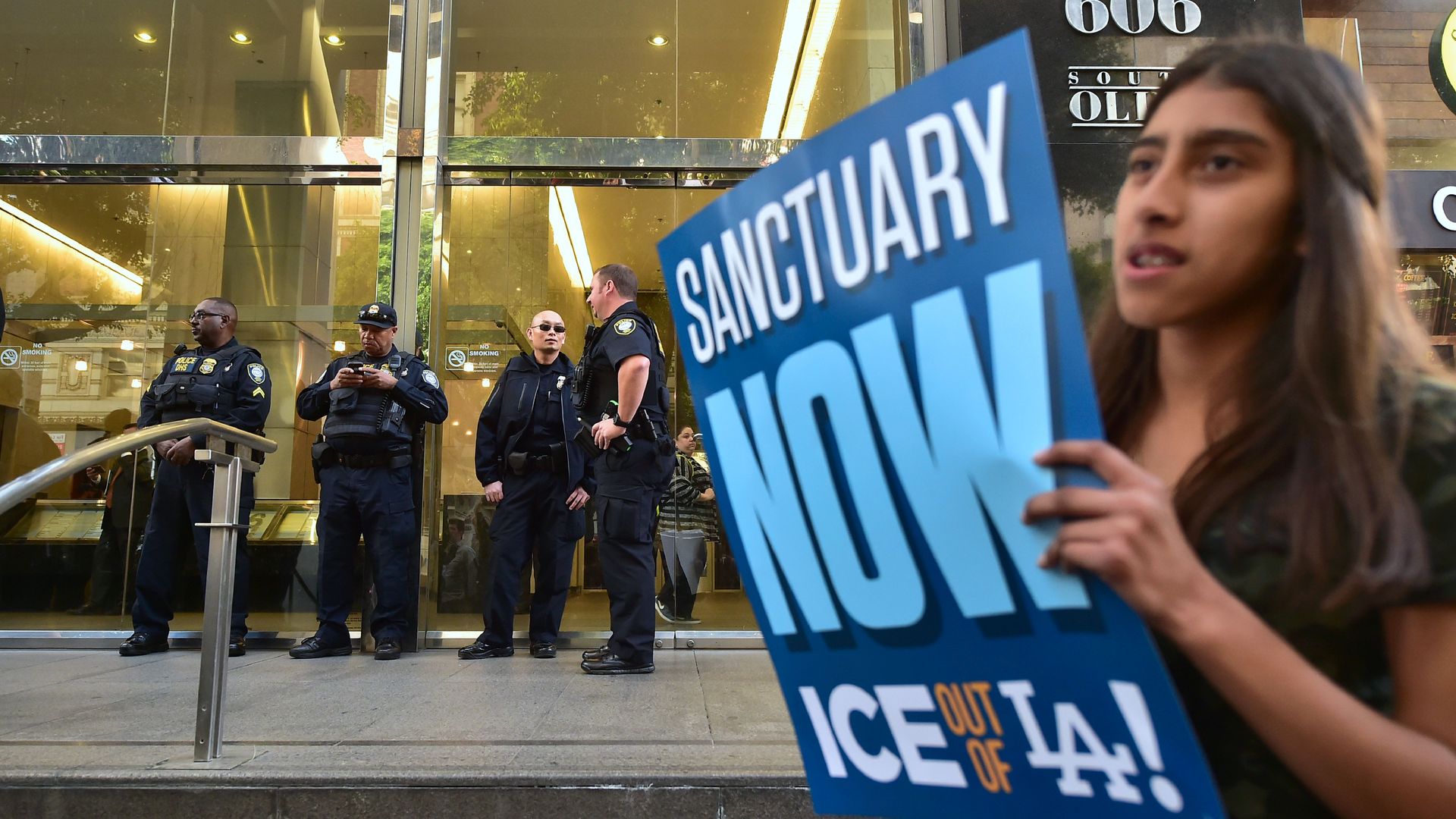Apr 13, 2018 - Politics & Policy
Judge deals a blow to Trump's "sanctuary cities" order
Add Axios as your preferred source to
see more of our stories on Google.

DHS police stand guard in front of an LA Immigration Court building. Photo: Frederic J. Brown/AFP via Getty Images
